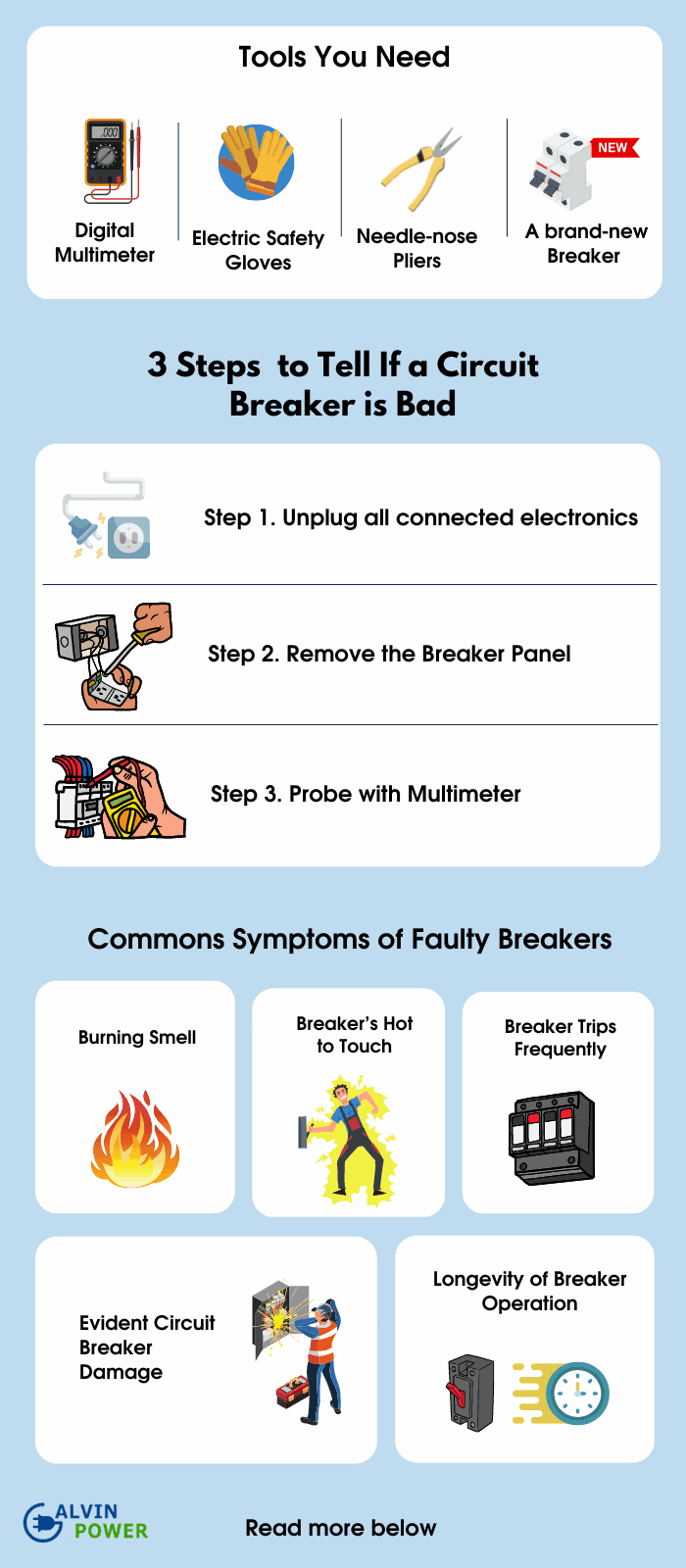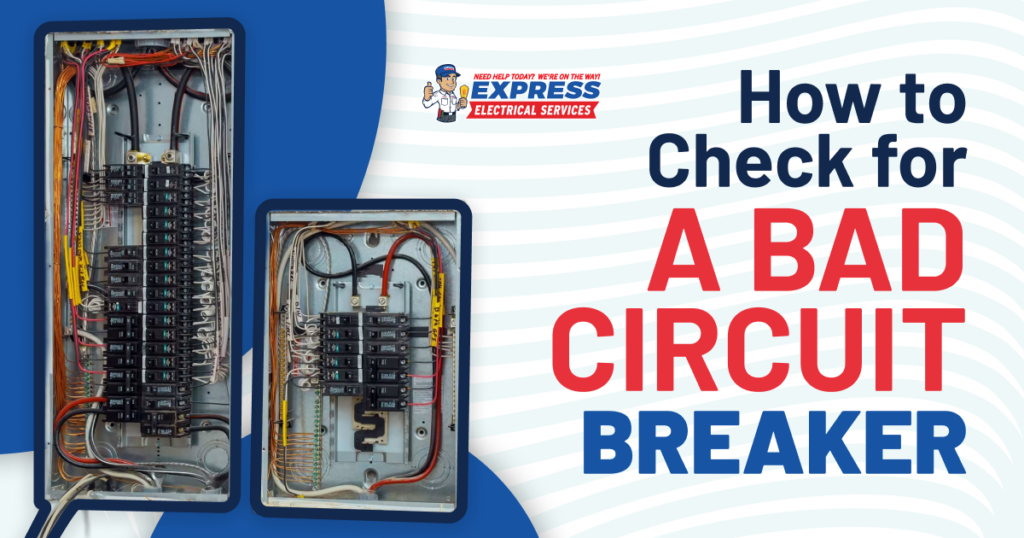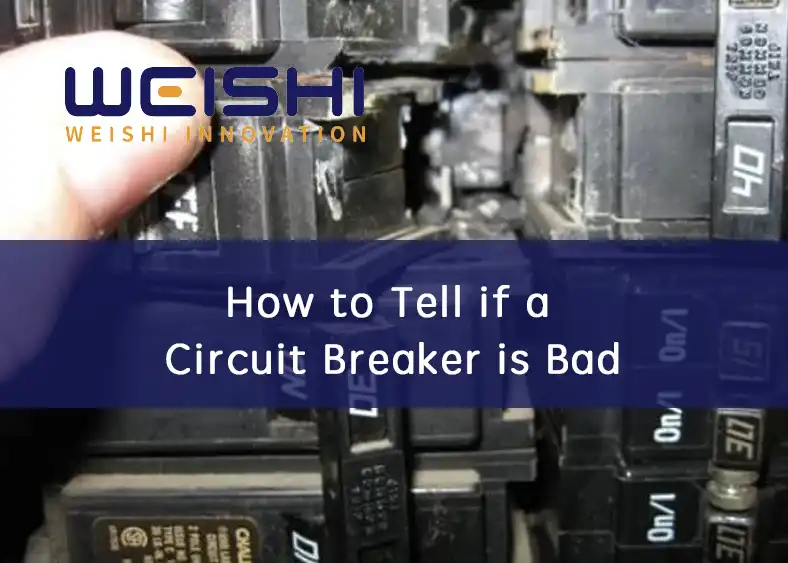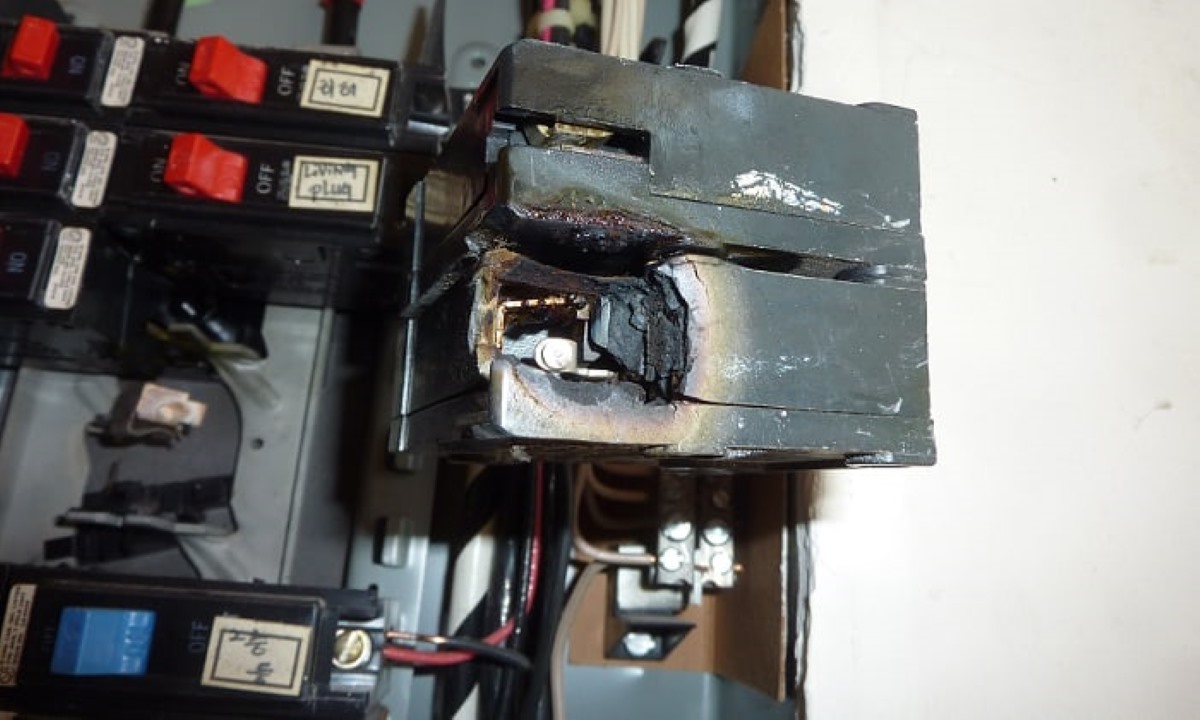What Everybody Ought To Know About How Do I Know If My Circuit Breaker Is Bad

How To Tell If A Circuit Breaker Is Bad Symptoms
Is Your Circuit Breaker Acting Up? Here's How to Tell
1. Spotting the Signs of a Faulty Breaker
Okay, let's be honest. Electrical issues can be a real headache. Trying to figure out if your circuit breaker is the culprit behind your flickering lights or dead outlets? Don't sweat it. This guide will walk you through some tell-tale signs that your circuit breaker might be on its last legs. Think of it as detective work for your home's electrical system — without the trench coat and magnifying glass (unless you're really into that).
First things first, consider the age. Like any mechanical device, circuit breakers have a lifespan. Most are designed to last for 25 to 30 years. If your panel is older than that, it might just be time for an upgrade, regardless of whether you're seeing obvious problems. An aging breaker can become less reliable, tripping more frequently or failing to trip when it should, which can be a safety hazard. Nobody wants to risk a fire!
Secondly, frequent tripping is a big red flag. It's normal for a breaker to trip occasionally, especially if you're running a lot of high-power appliances at once. But if a particular breaker is constantly tripping, even when you haven't changed your electrical usage, that's a problem. It could indicate a short circuit, an overloaded circuit, or — you guessed it — a faulty breaker. The breaker might be overly sensitive or simply worn out, leading to nuisance tripping.
Finally, pay attention to any visible signs of damage. Look for discoloration, burning smells, or melted plastic around the breaker. These are clear indicators that something is seriously wrong and that the breaker needs immediate attention. Don't ignore these signs! They're like your electrical system screaming for help. A damaged breaker can be a fire hazard and should be replaced by a qualified electrician ASAP.

How To Tell If A Circuit Breaker Is Bad In Just 3 Steps?
The "Switch" Test
2. Simple Checks Before Calling an Electrician
Before you jump to conclusions and call an electrician (although that's always a good option if you're unsure), let's do a little troubleshooting. The goal here is to rule out other possible causes before definitively blaming the circuit breaker. Think of it as a process of elimination. Is the problem truly the breaker itself, or is something else causing it to trip?
One of the simplest tests is the "reset" test. When a breaker trips, switch it fully to the "off" position and then firmly back to the "on" position. Sometimes, a breaker might appear to be on, but it hasn't fully reset internally. This can prevent it from supplying power properly. If the breaker immediately trips again after resetting, that's a strong indication that there's still a problem on the circuit, such as a short circuit or an overload. Time to unplug some things!
Another useful check is to try swapping the suspect breaker with a breaker of the same amperage that you know is working properly. If the problem follows the breaker, then you know for sure that the breaker is the issue. However, if the problem stays with the original circuit, then the problem lies elsewhere in the wiring or with the appliances connected to that circuit. Remember to turn off the main breaker before swapping them around!
Finally, try unplugging all appliances and devices on the affected circuit. Then, reset the breaker. If it holds, start plugging things back in one by one until the breaker trips again. This will help you identify if a particular appliance is causing the overload or short circuit. Sometimes, a faulty appliance is the real culprit, not the breaker itself. Electrical issues are often just a game of finding the guilty party.

Beyond the Obvious
3. Digging Deeper into Circuit Breaker Behavior
Sometimes, a bad circuit breaker doesn't announce itself with flashing lights and dramatic tripping. It can be more subtle, exhibiting behaviors that are easy to overlook. These less obvious signs can still point to a problem that needs attention, even if it's not immediately obvious.
One such sign is inconsistent power delivery. You might notice flickering lights, dimming appliances, or devices that don't seem to be running at full power. This could be due to a loose connection within the breaker, causing it to deliver an inconsistent flow of electricity. A loose connection can also generate heat, which can further damage the breaker and create a fire hazard. Inconsistent power delivery isn't just annoying; it can also damage your appliances.
Another subtle sign is a breaker that feels warm to the touch. While it's normal for breakers to generate a small amount of heat during normal operation, an excessively warm breaker can indicate an internal problem. This could be due to corrosion, loose connections, or internal damage. If you notice a breaker that feels significantly warmer than the others, it's definitely worth investigating further. Be careful when touching the breaker — use the back of your hand to check the temperature and avoid prolonged contact.
Lastly, listen for unusual noises coming from the breaker panel. Buzzing, humming, or crackling sounds can indicate arcing or loose connections within the breaker. These sounds are not normal and should be addressed immediately. Arcing can generate significant heat and can quickly lead to a fire. Consider it a warning sign from your electrical system that something is amiss and needs professional attention. Don't ignore the whispers — they could be shouting a warning!
/circuit-breakers-how-to-reset-a-circuit-breaker-1152756-hero-e69fdfecd2d64a06800fa0f77089c98f.jpg?strip=all)
Safety First
4. Knowing Your Limits and Protecting Your Home
Electrical work can be dangerous, and it's always best to err on the side of caution. There are certain situations where you should absolutely call a qualified electrician rather than attempting to diagnose or fix the problem yourself. Your safety and the safety of your home should always be the top priority.
If you're uncomfortable working with electricity, or if you don't have a good understanding of electrical systems, it's best to leave the work to a professional. Trying to fix electrical problems without the proper knowledge and experience can be dangerous and can potentially lead to serious injury or even death. Remember, electricity is not something to be trifled with. It's better to be safe than sorry.
If you see any signs of burning, melting, or sparking, call an electrician immediately. These are clear indicators of a serious electrical problem that needs immediate attention. Do not attempt to fix the problem yourself. Turn off the main breaker to the affected circuit (if possible) and call a qualified electrician right away. A small spark can quickly turn into a raging fire.
Also, if you suspect that your electrical panel is outdated or damaged, it's time to call an electrician. Older panels may not be able to handle the electrical demands of modern appliances, and damaged panels can be a fire hazard. A qualified electrician can assess the condition of your panel and recommend the appropriate repairs or upgrades. It's an investment in the safety and reliability of your home's electrical system.

How To Tell If A Circuit Breaker Is Bad Symptoms
FAQ
5. Quick Answers to Common Electrical Concerns
Let's tackle some frequently asked questions about circuit breakers. Hopefully, these answers will provide further clarity and help you better understand your home's electrical system.
Q: My breaker keeps tripping, even after I reset it. What's going on?
A: This usually indicates a short circuit, an overloaded circuit, or a faulty appliance. Try unplugging all appliances on the circuit, resetting the breaker, and then plugging them back in one by one to identify the culprit. If it still trips with nothing plugged in, it could be a short in the wiring, which requires a professional electrician.
Q: How often should I replace my circuit breakers?
A: Most circuit breakers are designed to last for 25 to 30 years. If your panel is older than that, it's a good idea to have it inspected by an electrician, even if you're not experiencing any problems. Regular inspections can help identify potential issues before they become serious.
Q: Can I replace a circuit breaker myself?
A: While it's technically possible, it's generally not recommended unless you have a good understanding of electrical systems and are comfortable working with electricity. Electrical work can be dangerous, and it's always best to err on the side of caution and hire a qualified electrician. The risk is real!
Q: What's the difference between a circuit breaker and a fuse?
A: Both circuit breakers and fuses are designed to protect your electrical system from overloads and short circuits. However, circuit breakers are reusable — you can reset them after they trip. Fuses, on the other hand, are single-use devices that must be replaced after they blow.
